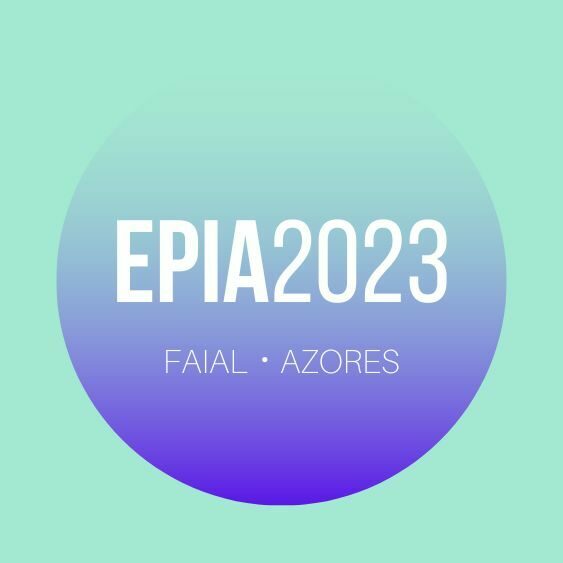Artificial Intelligence for Industry and Societies
Societies and industries face many challenges to be more intelligent and sustainable. In this context, many good practices and approaches are being explored, and numerous new contributions are being generated daily. Many good practices and procedures are being investigated and several unique contributions emerge without benefitting from sufficient visibility. The track “Artificial Intelligence for Industry and Societies” wants to overcome precisely this gap.
An intelligent society looks to citizens’ problems and tries to maximize the use of innovative technologies by collaboration across multiple sectors, so as to create more efficient, intelligent, and adaptable services. This is where the concept of smart cities comes into play, because it is perfectly placed to coalesce smart infrastructures with human needs through community services. Connected and efficient cities and communities can lead to informed, engaged, and contented citizens.
However, in order to have an innovative society, intelligent industries are also required. The concept of Industry 4.0 has been known in connection to the digital transformation of manufacturing-production and related sectors, and in value-creation processes, with Artificial Intelligence playing a vital role through the automation of processes, prediction and reduction of errors and failures. However, we are now witnessing post-Industry 4.0 developments in Europe and around the World, as led by eco-innovation and green (re-)industrialization”, driven by the transition to sustainable development. In these, A.I. will have an even stronger role, as complex multi-disciplinary projects need its support.
In this evolution, Industry and Societies must be holding hands, and this is a truly multi-disciplinary endeavour, whereby A.I. is a key hinge and facilitator between technologies, goods and services.
The present conference track seeks to bring togethers researchers and professionals, and further enable them to explore new solutions and applications across society and Industry: novelties or/and best practices to be implemented in the real world.
The event steps into a new era of technical communication by showing how scientific knowledge can be transferred to society and applied in the Industry using Data Science and A.I. approaches in topics like “Business, Industry and Smart Factory” and “Sustainable and Smart Cities and Societies”. IA4IS is open to receive and select several high-quality contributions in these two areas, especially propositions related to cognitive computing platforms and applications, including technologies and infrastructures related to A.I., machine learning, big data processing and data analytics.
This track is supported by the research project ioCity (NORTE-01-0247-FEDER-045397) and the Ministère des Relations internationales et de la Francophonie (Québec, Canada), the Université Française d’Égypte (Cairo, Egypt), the Université du Québec en Abitibi-Témiscamingue (Québec, Canada), and Le groupe MISA (Québec).
Fast-track Journal Extension
The best papers will be invited to submit an extended version to fast-track journal submissions or the MDPI Future Internet Topical Collection “Innovative People-Centered Solutions Applied to Industries, Cities and Societies”.
TOPICS OF INTEREST
Business, Industry and Smart Factory
- Advanced data visualisation and data management techniques and solutions
- Advanced interactive technologies, including augmented/virtual reality
- Advanced mechanical engineering technologies with Machine Learning
- AI-assisted designs and process simulations
- Artificial intellect
- Artificial Intelligence solutions and applications in Industry (eg. Metal, Textil, Garments, others)
- Augmented reality with artificial Intelligence
- Authentication, data security and protection
- Automation and intelligent robotics
- Controlling textiles materials using AI
- Cyber-physical systems (CPS) with Artificial Intelligence (AI)
- Industrial Internet of Things (IIoT) – Internet of Things modules, platforms and applications
- applied to Industry
- Minimizing production scarp
- Mobile and wearable devices with AI modules
- Optimizing melting, heat treatment and production processes parameters using data collection,
- analysis, and interpretation
- Optimizing the design, development and production processes of textiles and Fibers using AI
- Quality Control Systems
- Scrap management systems
- Smart factory, production technologies and systems
- Smart sensors
- Sorting technologies in scrap recycling
Sustainable and Smart Cities and Societies
- Big data, open data, and analytical tools
- Bring Your Own Device (BYOD) solutions
- Disaster management
- Internet of Things (IoT) for smart cities
- Responsible innovation
- Smart buildings
- Smart economy
- Smart energy
- Smart governance
- Smart grids infrastructures
- Smart Living, Wellbeing, and healthcare
- Smart people
- Smart sensing
- Smart Transportations and urban mobility
- Technological infrastructure for smart cities support
- Web/mobile solutions with AI
ORGANIZATION COMMITTEE
- Filipe Portela, University of Minho, Portugal
- Sherin M. Moussa, Université Française d’Égypte, Egypt
- Teresa Guarda, CIST Research and Innovation Centre, Universidad Estatal de la Península de Santa Elena, Equador
- Ioan M. Ciumasu, University of Paris-Saclay/University of Versailles, France
Steering COMMITTEE
- Dominique C. Adolphe, Université Française d’Égypte, Egypt
- Floriane Leclinche, Université de Haute-Alsace, France
- Hatem Mrad, Université du Québec en Abitibi-Témiscamingue, Canada
- Mohamed Abdelaziz, Université Française d’Égypte, Egypt
Program COMMITEEE
- Alfonso González-Briones, University of Salamanca, Spain
- Ana Azevedo, ISCAP, P. Porto, Portugal
- Anna Kobusińska, Poznan University of Technology, Poland
- Antoni Morell, Universitat Autònoma de Barcelona, Spain
- Antonio HJ Moreira, Instituto Politécnico de Cavado do Ave, Portugal
- Chiara Braghin, University of Milan, Italy
- Cihan Tunc, University of North Texas, USA
- Daniel Urda Muñoz, Universidad de Burgos, Spain
- Dina, Fawzy, Ain Shams University, Cairo, Egypte
- Felix J. Garcia Clemente, University of Murcia, Spain
- George Stalidis, International Hellenic University, Greece
- Hanmin Jung, Korea Institute of Science and Technology Information, Korea
- Inna Skarga-Bandurova, Oxford Brookes University, UK
- Johannes Winter, National Academy of Science and Engineering, Germany
- Jorge Bernardino, Polytechnic Institute of Coimbra, Portugal
- Juan-Ignacio Latorre-Biel, Public University of Navarre, Spain
- Mahmoud, Mounir, Ain Shams University, Egypte
- Marco, Alfonse, Université Francaise d´Egypte, Egypte
- Muhammad Younas, Oxford Brookes University, UK
- Nelson Rodrigues, DTx – Ditigal Transformation CoLAB, Portugal
- Nikolaos Matsatsinis, Technical University of Crete, Greece
- Omid Fatahi Valilai, Jacobs University Bremen, Germany
- Panos Fitsilis, University of Thessaly, Greece
- Roaa, Elghondakly, Ain Shams university, Egypte
- Sara Paiva, Instituto Politécnico de Viana do Castelo, Portugal
- Sergio Ilarri, University of Zaragoza, Spain
- Spyros Panagiotakis, Hellenic Mediterranean University, Greece
- Waleed, Adel, Université Francaise d´Egypte, Egypte
- Yasmeen, Adel, Université Francaise d´Egypte, Egypte
- Yasmine, Afify, Ain Shams University, Egypte

